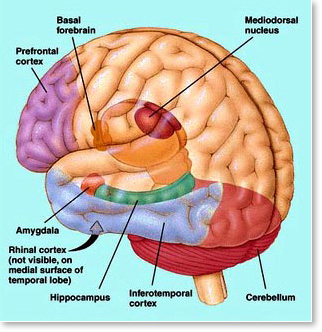|
How We Present
the News
WORLD NEWS
Positive Trends
Success Stories
Flops
Agriculture
Business
Culture
Education
Government
Health
Science
World Peace
News by
Country
Maharishi in the
World Today
Excellence
in Action
Consciousness
Based Education
Ideal Society
Index
Invincible World
Action for
Achievement
Announcements
WATCH LIVE
Maharishi® Channel
Maharishi TV
Maharishi Darshan
Hindi Press Conferences
Maharishi's Press
Conferences and
Great Global Events
ULTIMATE GIFTS
Maharishi's
Programmes
Maharishi's
Courses
Maharishi's
Publications
Scintillating
Intelligence
Worldwide Links
Transcendental
Meditation
RESEARCH
Album of Events
Celebration
Calendars
Musicmall ♬
Search
|
PTSD and the brain: How Transcendental Meditation can help
by Gary Kaplan, M.D., Ph.D.
www.TM.org/blog Translate This Article
12 August 2011

Now more than ever we are aware of the impact of post-traumatic stress disorder (PTSD) on veterans returning from the front lines of wars in the Middle East, raging for the last ten years. These wounded warriors often respond poorly to traditional treatment with drugs, aimed at adjusting levels of brain neurotransmitters, which in part mediate the abnormal response to stress.
PTSD is characterized by repeated re-experience of traumatic events; avoidance symptoms, including reluctance to think or talk about the trauma; and excessive arousal symptoms, including poor sleep and poor concentration.

What is the biologic basis of this disorder? Though all of the puzzle pieces have not yet been put together, we do know that certain parts of the brain responsible for explicit memory (i.e., the verbal memory of the event) and emotional reaction do not function normally in people afflicted with PTSD:
1. The gateway of memory, the hippocampus, located near the undersurface of the brain, is reduced in size in many PTSD patients, apparently because of the negative effect of stress hormones on the nerve cells that make up this structure. The result is memory impairment and amnesia for some events.
2. A neighboring structure, the amygdala, is abnormally activated in PTSD. The amygdala infuses memories with strong emotion, and its excessive activity can trigger anger and rage reactions.
3. The prefrontal cortex, the seat of judgment and planning, thought to act as a counterbalance to the impulsive amygdala, is also negatively affected in PTSD.
PTSD has traditionally been treated like other anxiety disorders characterized by episodic flare-ups, which are incapacitating. Drugs aimed at treating both anxiety and depression are utilized, as are behavioral therapies, all with limited success.
The recent pilot study showing a 50% reduction in PTSD symptoms in veterans practicing Transcendental Meditation is welcome news . . . .
Global Good News will continue featuring Dr Kaplan's post, which looks more deeply into the recently published research study on Transcendental Meditation and PTSD, and discusses beneficial EEG changes during the technique. It also includes a video post of an Iraq war veteran describing the relief from PTSD symptoms that he found soon after learning Transcendental Meditation.
References:
∙ Neurobiology of Posttraumatic Stress Disorder; D. Jeffrey Newport and Charles B. Nemeroff; Focus 1:313-321 (2003) Am. Psychiatric Assoc.
∙ Effects of Transcendental Meditation in Veterans of Operation Enduring Freedom and Operation Iraqi Freedom With Posttraumatic Stress Disorder: A Pilot Study; Rosenthal, Joshua Z.; Grosswald, Sarina; Ross, Richard; Rosenthal, Norman; Military Medicine 176: 6 pp. 626-630 (2011)
———————

Gary Kaplan, M.D., Ph.D., is a neurologist and Associate Professor of Clinical Neurology at Hofstra University School of Medicine. Dr. Kaplan received the Albert H. Douglas Award from the Medical Society of the State of New York for outstanding achievements as a clinical teacher interested in promoting and improving the medical education of physicians. He is also a nationally recognized expert on the effects of the Transcendental Meditation program on stress-related illnesses, and he appears regularly on CNN, NBC and CNBC and other national television programs speaking about the latest research on Transcendental Meditation and its effects on health.
Related posts:
1. Top psychiatrist speaks about the potential of the TM program for treating PTSD
2. Veterans Show a 50% Reduction in PTSD Symptoms After 8 Weeks of Transcendental Meditation
3. Meditating veterans experience reduced PTSD symptoms
4. New study finds TM boosts brain functioning and helps students with ADHD
5. ''Meditation promoted for soldiers suffering from PTSD'' - CNN
© Copyright 2011 Maharishi Foundation USA
Translation software is not perfect; however if you would like to try it, you can translate this page using:
|

|



